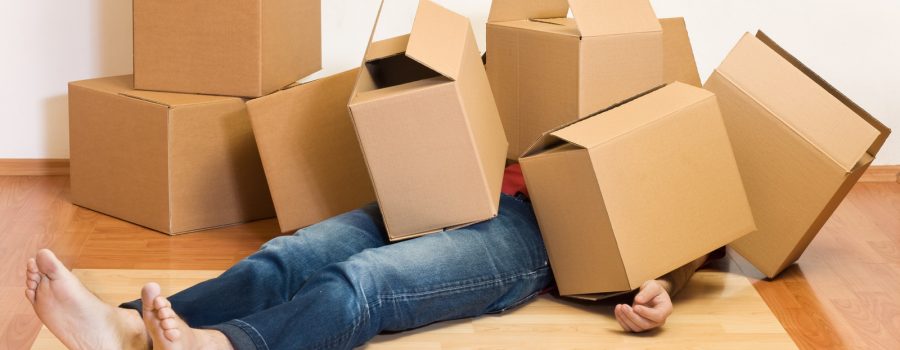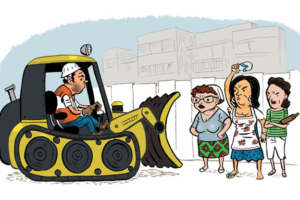So you’ve taken the leap, signed away the next 30 years of your life, and got a set of keys to your new home. What now? This is usually the point that shit gets real. Where can I find movers? Should I get the carpets removed? Where do I pay my bills? The chaos is compounded by the impending first mortgage bill. Well, we’ve prepared a quick guide to help you ease into your new home without missing a beat.
First Things First – Get Yourself Organized
Adulting is hard, and adulting without a way to organize yourself will be almost impossible. If you haven’t already done so, you might want to start with letting your landlords/roommates know that you’ve decided to move on. Make sure you review your lease, sublease, or do whatever possible to minimize your damage before you move out, and into your new casa:
- Update your new addresses – As much as we rely on emails and online bills, so much of our correspondence still arrive via snail mail. Make sure you register with the town/city of your residence about (this will help with your property tax) as an owner-occupant. Update your addresses for all your credit cards, bank accounts, human resource, driver’s license, and anything that will cause a havoc if things are sent to the wrong address. The post office actually lets you route your mails to a new address for X amount of time so you should definitely look into that.
- Register your utilities – Most utility companies will default the bills to the subject property but some might turn off the service after X number of days without an account holder. You don’t want to be left without gas, water, or electricity so this should be your priority right after your deed is recorded.
- Automate your mortgage and bill payments – If not already done, automating your bills and mortgage payments is a simple hack to get you back an hour a month. This also takes the burden off of having to remember to always pay your bills.
- Keep all your closing documents handy – The stack of documents that gave your carpal tunnel during closing may never be used again but it is good practice to ask your attorney for an electronic copy in case the legitimacy of your ownership comes into question. Documents like your HUD forms and closing disclosure might be needed during tax season as well.
- Review any trash/recycling schedules – Every neighborhood and municipality has a different trash/recycling regulation. This may seem trivial until your trash piles up for weeks because you keep missing your trash day. This also comes in handy if you are updating your home and may need to get rid of furniture and more.
Ease Into Your Community
Being a new homeowner also means you’re becoming a member of the local community and as such, it’s highly recommended that you familiarize yourself with your surroundings. Not only is it a friendly thing to do but your neighbors may have legal say into future modifications to your home.
- Neighborinos – If you live anywhere long enough, you’ll inevitably run into your neighbors (particularly if you share a large condo building together). That’s actually the best opportunity to introduce yourself and exchange contacts. You never know when there’s an emergency and you need help from the closest persons (literally) around you. If you neighbor is a hermit, it could be helpful to leave a note by their door to do a virtual introduction and share your contact.
- HOA Association – Your HOA should be reaching out to you (if they want to collect their dues) but if they haven’t, then it’s your responsibility to find them. Your neighbor is a good source for that (read above) or if need be, google them. It’s good to establish a contact point with the HOA in case there are questions about parking, trash removal, rodents, common area repairs, and bills.
Get To Work
Unless your home is move-in ready, you may have a handful of items you plan to repair or update. That’s just the nature of homeownership; there’s always something to do. Go through these points to avoid a costly mistake:
- Contracting – As a new homeowner, you should get comfortable working with a contractor. Unless you’re super handy, there will be things you want a professional to handle. In some HOAs, they may require your contractor to be licensed (which there are many). You should always get multiple quotes (3+) before any job just to compare rates and reviews. You should never pay the contractor in full until the job is finished (payment schedule). Look at sites like thumbtack, handy, or homeadvisor to help find qualified contractors. Lastly, if the job is extensive enough (like flooring replacement, or additions, etc.), you’ll want to wait for the job to complete before moving in to avoid breathing in the construction debris. So plan ahead!
- Deep Cleaning and Consumables – If the property has been “well lived-in”, chances are you’ll want to do a deep cleaning session and replace some consumable items. Here’s a short list of items you may want to replace:
- Shower Curtains
- Window Curtains or Shades
- Toilet Seats
- Filters for your Furnace
- Laundry Filters and Exhaust Tubs
Tips: I would highly recommend getting a nice dust filter mask, especially if you’re replacing filters, or cleaning in dusty areas. You never know what lurks in these buildings so it helps to be safe. I personally have a 3M multi-purpose respirator which I use whenever I’m cleaning or replacing filters. Get one… your lungs will thank you.
Tips: – Save with Mass-Save. Obviously this pertains to Massachusetts residents only. If you’re out of state, I am sure there are similar state-funded programs (Google it!). You’ve likely heard of this program during your home-inspection and didn’t think much of it. But it can save you mucho $$$ if you qualify. The program is funded by property tax dollars to help improve energy efficiency across the state. Every homeowner qualifies for a Mass-Save inspection and audit. You’ll get goodies like LED light-bulbs, new aerators for your faucets, digital thermostats, and shower heads, completely free! If you have an old furnace, boiler, water heater, laundry machine, or more, you may even get a rebate for new/high-efficiency appliances. With my audit, I bought a new Mass-Save Certified Energy Star Washer and received a $350 rebate after verifying purchase!
In all cases, congratulations on your new home and your journey to wealth building. As a closing note, the average net worth of renters is $5,000 while the average net worth of homeowners is $230,000. You’ve made the right move and your future-self will thank you.





